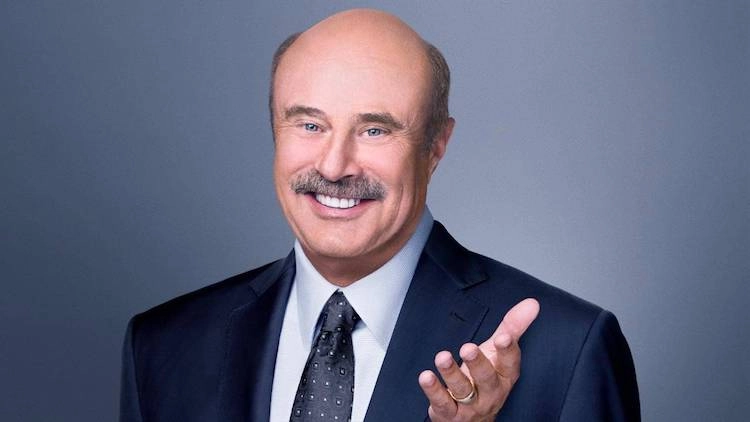The Therapist We Need
Dr. Phil McGraw is a household name. For over two decades, his no-nonsense, tell-it-like-it-is style of “therapy” has captivated millions. He’s built an empire on confronting guests with their problems, dishing out life advice, and offering what appears to be tough-love counseling. But here’s the truth: Dr. Phil isn’t the therapist America needs—and frankly, he never was.
While his show may entertain, it distorts the reality of what therapy looks like, often reinforcing harmful narratives about mental health, healing, and human vulnerability. As a mental health professional, I find myself cringing at what unfolds on his stage. Here’s why.
The Blurred Line Between Therapy and Entertainment
Let’s start with the obvious—Dr. Phil isn’t therapy. It’s television. There’s nothing wrong with mental health being discussed in the media, but when therapy is reduced to dramatic interventions in front of a studio audience, something gets lost.
Real therapy is private, safe, and client-centered. It’s not a confrontation for the cameras. Dr. Phil’s format thrives on spectacle, turning deeply personal struggles into segments that are packaged, edited, and produced for maximum entertainment value. The raw humanity of mental health is whittled down into digestible, often overly simplified sound bites.
For viewers at home, this might look like “help.” But to those of us in the field, it raises ethical questions. Are the guests truly receiving support, or are their struggles being exploited for ratings?
Dr. Phil Isn’t Licensed
Despite his title and background in clinical psychology, Dr. Phil hasn’t been a licensed therapist since 2006. In the world of mental health, licensure isn’t just a credential—it’s an assurance that a practitioner is accountable to ethical boards, engages in continuing education, and adheres to strict professional standards.
By stepping away from licensure, Dr. Phil operates in a gray area. While he doesn’t technically claim to provide therapy on his show, the lines are blurred enough to create confusion. Viewers see a man with “Dr.” in front of his name dispensing psychological advice and assume he’s practicing as a psychologist. He’s not.
Therapy without accountability isn’t therapy—it’s entertainment masked as intervention.
The Oversimplification of Mental Health
Mental health isn’t linear. Recovery from trauma, addiction, or family dysfunction doesn’t fit into the neat structure of a 45-minute episode. But on Dr. Phil, the complex layers of mental illness and personal hardship are often stripped down to digestible, one-size-fits-all solutions.
Tough love might make for great television, but it rarely reflects the intricacies of healing. Telling someone to “own their behavior” or “get real” isn’t therapeutic—it’s a quick fix that may shame more than heal.
For people living with mental illness, this simplification can feel invalidating. The message becomes: If Dr. Phil can fix someone in one episode, why can’t you fix yourself? This dynamic reinforces harmful myths about the speed and nature of recovery, making real-life healing feel even further out of reach.
A Culture of Shame and Spectacle
Perhaps the most troubling aspect of Dr. Phil’s show is the tone in which guests are addressed. Confrontation, often in front of a live audience, creates an environment that feels more punitive than therapeutic. Guests are put on the defensive, their most vulnerable experiences broadcasted for the world to see.
Therapy is not about humiliation. In real clinical work, the therapeutic relationship is built on trust, collaboration, and empathy. Growth comes from understanding and compassion, not public shaming.
I often wonder how those guests feel once the cameras stop rolling. How do they process the experience of being told, in front of millions, that they’re the problem?
Why It Still Works for Some People
Despite all the criticisms, Dr. Phil has an undeniable pull. For some, his straightforward advice feels refreshing. Many people are drawn to his candor, appreciating the way he cuts through excuses and tells it like it is. There’s a certain comfort in black-and-white thinking—an allure to the idea that someone out there has the answers.
I understand that. In a world where mental health care can feel inaccessible or confusing, Dr. Phil offers clarity, even if it’s oversimplified. Sometimes, people just need to feel heard, even if that “hearing” happens through a television screen.
The Danger of Mistaking Television for Therapy
Here’s the bottom line: Dr. Phil isn’t inherently bad—he’s just not a substitute for actual therapy. For viewers, the key is recognizing the difference between entertainment and mental health care. If his words inspire someone to seek help, that’s a win. But if they lead to unrealistic expectations about recovery, the harm outweighs the good.
Therapy is slow, messy, and deeply personal. It doesn’t always come with neat answers or “aha” moments. And that’s okay. Real healing happens in the small, quiet spaces of vulnerability—not under the harsh lights of a television studio.
To Those Seeking Help
If you’re struggling with mental health, I urge you to reach out to a licensed therapist, counselor, or social worker. Therapy isn’t glamorous, but it’s real—and it works. Unlike Dr. Phil, your therapist won’t ask you to perform for anyone. You’ll be seen, heard, and supported—not for entertainment, but because you deserve it.
Max E. Guttman is the owner of Mindful Living LCSW, PLLC, a private mental health practice in Yonkers, New York.
- Max E. Guttman







